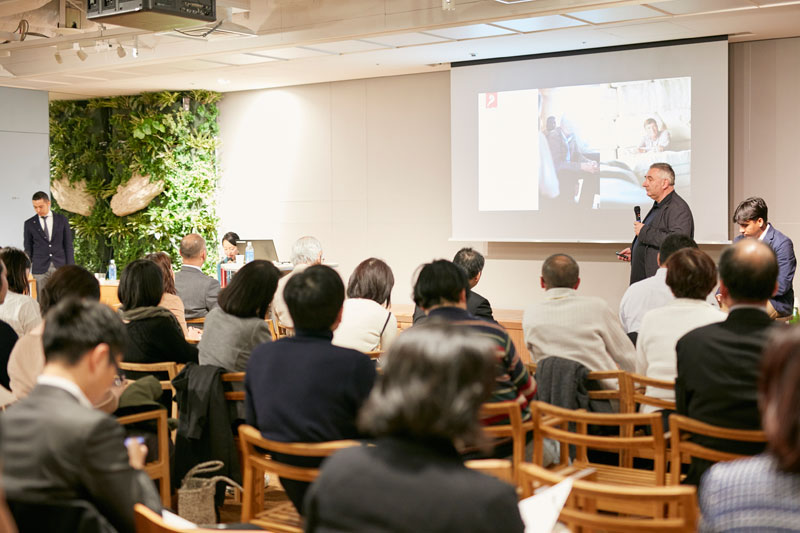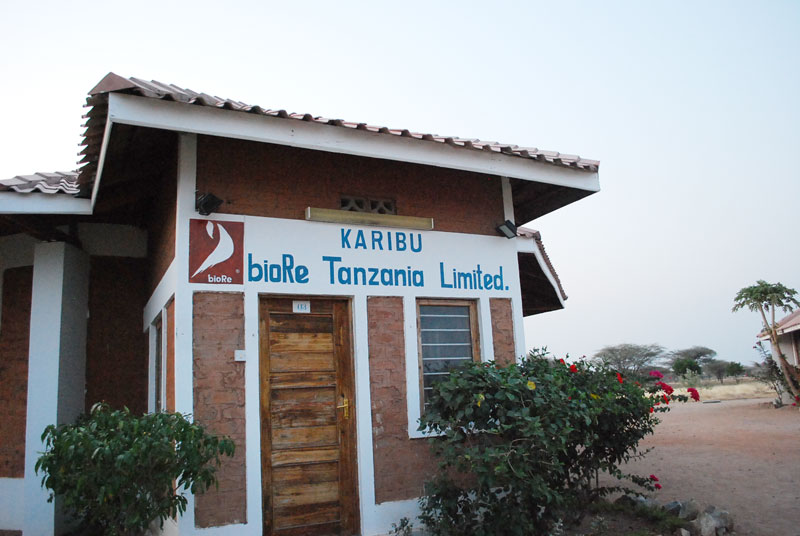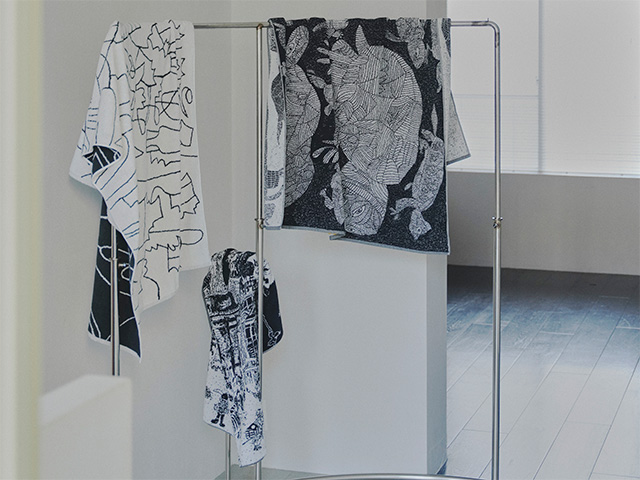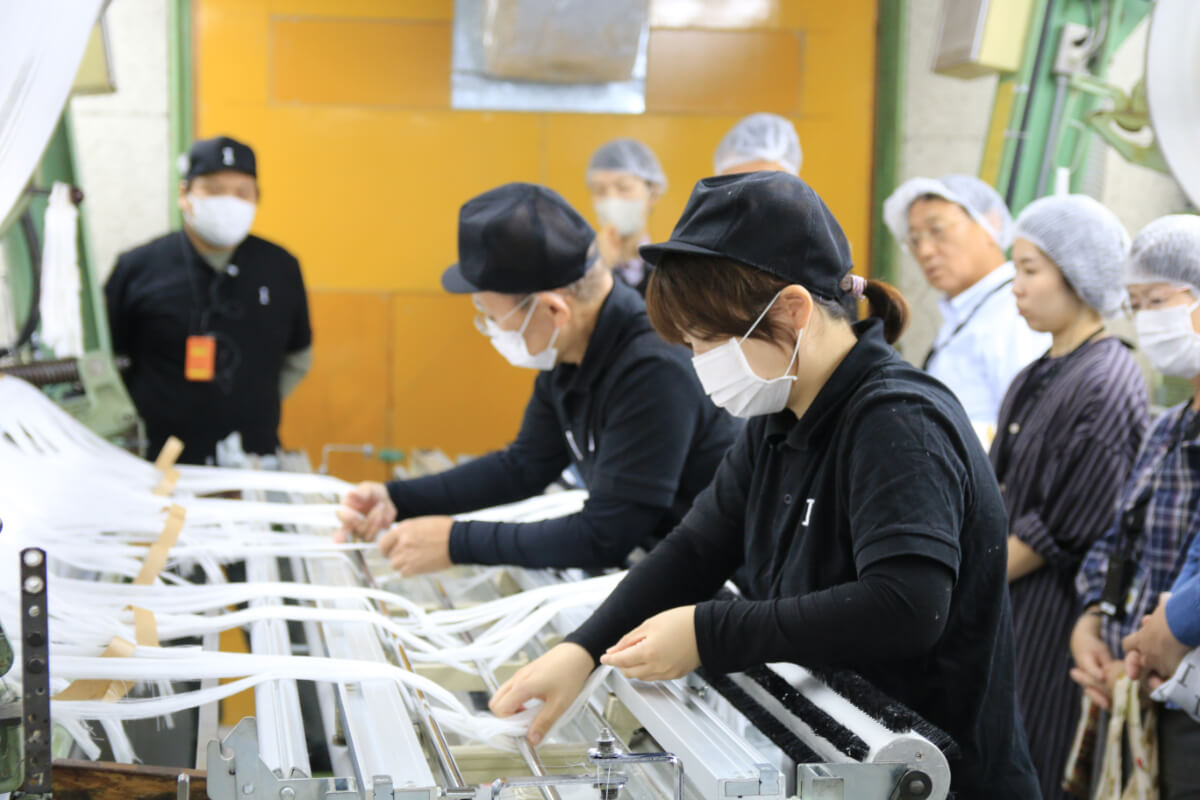- TOP
- News & Events
- News
- Learning from REMEI Switzerland, Challenges and Hopes for Social Business #425 Questions to REMEI
Learning from REMEI Switzerland, Challenges and Hopes for Social Business #425 Questions to REMEI
2017.04.28
Table of Contents

After the “Learning from REMEI Switzerland, Challenges and Hopes for Social Business” event held on March 24, 2017, three members of REMEI answered the following 25 questions on six themes prepared by the participants and IKEUCHI ORGANIC, the organizer of the event, about REMEI’s initiatives. The following 25 questions on six themes were prepared by the participants and IKEUCHI ORGANIC. Respondents Question Index 1:Background leading to your current business 2: Regarding the selection of production countries and locations 3: About genetic modification 4: Regarding the business model 5: Regarding sustainable initiatives 6: About IKEUCHI ORGANIC 1: Background to the current businessQ1: Mr. Helmut, I am interested in Mr. Vivek’s outlook on life. What did you do when you were students, in your 20s and 30s? Helmut: I started with textile engineering design and then became a textile engineer. around 1980-90 the business in this field was developing rapidly. after 7 years of experience I became the production manager of a company that was characterized by environmental protection in the textile industry sector. The company produced filter materials. I got married and had two children. I enjoy family life and participate in social activities in my community. Vivek: I grew up in a middle-class family in the bioRe project area. My ancestors were temple priests and my father was a school teacher. I studied at a local public school and then at a college in Indore. While attending college, I worked as an announcer for Radio India. In 2001, I joined SOS Children’s Villages in Delhi. I worked there for 4 years before returning to my hometown, where I also studied business administration and law for a while. In 2005 I started working for bioRe as its first employee and in 2008 I became CEO. My family is married with two children. I strongly share and respect Patrick Hoffman’s intentions and am very proud to be a part of this bioRe project that he has built. Q2: How did you become interested in the poor, Mr. Helmut? Helmut : I am not particularly interested in poverty. When I travel and visit different countries, I am often struck by the different living conditions of the people. People are influenced by where they are born and by their surroundings. Human rights should always be protected, but in reality this is not always the case. Patrick Hoffmann’s intention is based on respect for people and nature, which is embodied in the activities of REMEI and its two projects in India and Tanzania. I agree with this and joined the company. I feel a strong sense of empathy with the way everyone works together to make the projects work well, and it continues to be the driving force behind my work. This attitude encourages everyone involved in our business, from farmers to sellers. And I believe that we are helping to improve the lives of those who are called poor. Q3: What inspired you to start this kind of social business? Patrick: I did not start it as a social reform work. It started when I realized the absurdity of Indian farmers being forced to work for agrochemical companies. They were not given any legitimate benefits. They were only able to get a pittance from the government. It was a completely unacceptable situation, so I decided to do something different to change it. And that different way was “organic. And I thought it would be good to be able to work with them on their own terms. We learned that farmers at that time were not getting fair compensation to expand new farmland, and they did not have the freedom to cultivate or improve their livelihoods. We considered whether to go completely organic or to weave together various business elements. In the end, we realized that we could not have it both ways. At that time, we still had our traditional business, which was like a haberdashery shop, so to speak, with a lot of miscellaneous things. So we decided that the important thing was to organize the unnecessary businesses and focus on building a sound social movement organization. Q4: What led you to establish REMEI in 1983? Patrick: At first, we were a very simple trading company of spun yarn. We started REMEI in 1990 with the agreement of some farmers in India to start an organic cotton business. We chose to go into organic farming because the farmers were not doing well. The project in India was run by an Indian company in the area. The first year we worked with that company was a complete failure. I wanted to quit this business. The farmers told us that our way of doing things was not good enough. So we decided to share our wisdom and try to improve it. After much trial and error, we found a new direction and decided to focus on it. By 2004, they decided to completely end conventional agriculture and focus on organic farming. At the same time, we set our sights on fair trade and ethical policies. Generally, farmers were tied up in debt with Indian companies. So we took that debt off their shoulders so that they could participate in our project. We already had a good relationship of trust with the farmers, so they agreed with our policy and followed us. We took on a heavy responsibility. We decided to work more and more with the farmers to improve their difficult lives. This is how the Indian and Tanzanian funding schemes worked. To make what we are doing worthwhile, we have to maximize the efficiency of our production and make sure that we are making a good profit, otherwise we cannot sustain the Fund. 2: Selection of production countries and locationsQ1: Why did you choose India and Tanzania as your cotton-growing bases, and why did you choose these two rural villages (what did you particularly value, etc.)? Patrick: That was a decision made by our partners in India and Tanzania. The first question was, what is organic cotton in the first place? The first question was to understand its essence. Next we decided to guarantee that we would buy their entire crop. We did not intend to take total control of the project. It was in our best interest that the farmers take the lead. However, once trouble did occur, the project staff stepped up to the forefront to deal with it and make the most of the fund’s functions. What we should always keep an eye on is to keep the relationship between the bioRe project and the bioRe Fund independent and to maintain a sound management. Q2: How long did it take you to research whether India and Tanzania were suitable for cotton cultivation? Patrick: Time is not an issue. I believe that everything that happens is predestined. Humans, regardless of race or upbringing, can be united toward a single task. As long as that challenge is legitimate and an inherent human demand, nothing needs to change. This concept is universal. Even today, projects are never secure and are always on the edge. The weather has been a constant source of frustration, with inadequate rainfall. Other problems remain. The best way to overcome these problems is through cooperation, and we have that relationship. We must help each other in every situation. We need to respect each other in every situation. In this sense, we must be organic in a meaningful way. And we have to buy it. I am glad to see your interest. 3: About genetic modificationQ1: What methods do you use to check for genetically modified cotton? Vivek: At bioRe, GMO (genetically modified organism) contamination detection testing is done in three stages. Before purchasing cotton harvested by farmers, our staff goes to the fields to check for contamination. The harvested cotton is then fed into the cotton mills, where it is tested again. The final inspection is done when the cotton is shipped to the spinning mills, where a certification body takes a sample of each bale (lot) of cotton and sends it to a laboratory in Switzerland for confirmation. Once contamination is detected, it is traced back to where the contamination occurred and the offender is identified. The product is then removed from the regular organic cotton. As mentioned above, we are very thorough in our inspections to ensure that our products are free of GMO-contaminated cotton. Q2: Are your testing methods publicly available and widely recognized? Vivek: Assuming that the description of the 3-step method of contamination testing was the correct answer to your question, and I would add that this method was developed by bioRe India, and other projects in India are in the process of studying this method. However, it seems that no one has actually adopted this method, as it requires a high level of awareness to implement it, and it is not worth it if cost and efficiency are prioritized. Q3: Are test reagents readily available? Vivek: Yes, they are readily available. There are test kits available from several companies. These kits are originally intended for companies that deal in GMO seeds. They are also used by manufacturers to combat seed brokers who are selling GMO seeds fraudulently or making duplicates. This kit has nothing to do with organic cotton. Q4: What kind of GMO cotton does it detect? Vivek: In India, 95% (of the cotton grown) is GMO. So wherever it is grown here, it is GMO cotton. So how difficult it is to supply pure, uncontaminated cotton. You will also understand that such a thorough 3-step inspection system is really necessary to ensure trust. Cotton is a plant that is cross-pollinated by pollen, which is carried by wind and insects. You may think there is no way to prevent this, but we are doing our utmost to prevent it. 4:About the business modelQ1: One way to improve society and have a positive impact on society is to increase volume. Helmut: Maintaining the ecosystem means understanding the balance between the actions of nature and its resources. Organic agriculture means to owe it to the action of nature, and for this reason, it is important to create a soil that is strong. We must respond to adverse conditions such as lack of rainfall and pests as a matter of course. Community members’ sense of sociality is built on a growing sense of trust. Currently, there are many, many conventional farmers around the bioRe project area. The project can be expanded by converting these people to organic farming. There is still much to be done to improve agriculture, and it is possible to expand quantitatively by increasing efficiency. We will continue to improve the quality of the seeds of the bioRe project through farmer-to-farmer innovations and to take the project to the next level. The bioRe staff itself is growing and can provide useful advice to farmers. Expansion can sometimes be detrimental to resources, but bioRe farmers understand the significance of environmental conservation and sustainability so that the next generation of their children will not have to worry about it. Q2: Similar to the above, please tell us about your thoughts on expanding volume and pricing (whether or not to lower the price in proportion to the volume). Helmut: We need to be competitive as a business. We have been researching competitive pricing. It has to be fair trade, and the producer’s share has to be competitive. If we take this question as meaning that the people who benefit from this business, including consumers, should be in harmony, we can say that this is what we are working on day and night. Q3: How exactly is the impact of organic cotton cultivation on local (India and Tanzania) poverty alleviation evaluated from a third-party perspective? Vivek: Organic farming is a good way to eradicate poverty. bioRe farmers use minimal resources and have a lucrative cash conversion of their cumbersome harvests. Because farmers generally do not have adequate educational opportunities, they are forced by middlemen to buy pesticides and fertilizers, which puts them in debt. Furthermore, they are not given enough knowledge on how to use pesticides, so they are exposed to harmful pesticides, which can lead to serious illnesses. They have no time to think about production efficiency and are seriously affected by climate change, so their farming efforts are not rewarded. In turn, bioRe farmers secure their own inputs for farming, such as compost, use non-GMO seeds at 15% more than the market price, and the project comes and collects the cotton without having to take it out. According to our estimates, even if production falls 15% below market, it should be tolerable enough since the cost of production is 38% lower than conventional farming. bioRe farmers are debt free, which is a sign that they are not in poverty. They may have advantages such as good health, rich soil, and rich biodiversity. Patrick: We used several research firms to find out how farmers are doing. We concluded that organic farming would be a good case study of farmers managing their money well. This shows that they have the ability to hold up when damages are caused by climate irregularities. In the Tanzanian case, livestock are growing and reproducing well because the soil has been enriched by organic farming. These findings show that this project, which has been many years in the making, is achieving exactly what it set out to do. Q4: The business model of producing in India, where prices and human costs are low, and selling in Europe, the U.S., and Japan is only possible because of the difference in prices. Can you say that a business that takes advantage of this cost difference will be sustainable in the future? Can it really be called a price gap? Can cotton grow in Japan and Europe? According to David Ricardo’s theory, the mechanism for comparing costs comes from external trade (trade) or business abroad. The primary reason is that Europe cannot harvest cotton, so they import organic cotton from India and Tanzania. The wages in India and Tanzania are low, but they can be improved to better advantage. We are confident that we can provide a stable supply of organic products to Europe and Japan. We will continue to increase the number of countries like India and Tanzania. Q5: What kind of production environment do you plan to create to make India a sustainable industry when it achieves more economic growth and becomes no different from Europe and the United States? Patrick: The bioRe system is based on a policy. This policy reflects the wishes of all the beneficiaries involved in the project. The policy is never static and should be reviewed from time to time. We are willing to change when we work together and work for the greater good. Q6: The business model of distributing products processed in developed countries using raw materials produced in low-cost countries is too expensive and uncomfortable for local raw material producers to purchase products. What do you think should be done to make the system work so that producers can also purchase the products? Patrick: Let me answer this question as it is directed to me. It depends on whether it can be delivered to the producer or not. Who can be responsible for this situation? As a general rule, I believe that local industry should be utilized. Of course, it is assumed that the company understands the concept of organic. We also hope that consumers in this region are interested in this product, but the fact is that there is very little interest. Speed is always required, organic farming is difficult, and there is a lot of work to be done. It is based on the great principle that “if you don’t want it, you can’t make it happen.” There is a nuance in your question that what anyone can do, the locals must be able to do. Unfortunately, it does not work that way. We gave T-shirts of our product to farmers in Tanzania. They all loved it. Q7: Do you have any special requirements or preferences when selecting suppliers? Helmut: Of course, a transaction will not last long unless they understand the importance of sustainability. If a prospective business partner does not understand our concept of quality and does not adhere to our standards, we will not do business with them. We always follow our trading decisions, and if there is a problem, we will make every effort to solve it together. We want to have a long business relationship. If, unfortunately, the relationship has to end, we will do our best until then. 5:About our sustainable approachQ1: To grow organic cotton in India, it is necessary to have the local staff who actually grow the cotton understand the meaning and reasons for the time and effort involved, which is not an easy task, but how are you able to communicate and achieve this? Vivek: Sometimes it is a difficult problem. But ultimately, everyone should know this truth. Organic farming is about enriching the soil, even to the point where future generations can live in peace, maintaining biodiversity, making agriculture strong enough to cope with climate change, and eating safe and healthy crops. It encourages farmers to rethink the practices of their ancestors, who have lived successfully in agriculture without pesticides. We teach them knowledge of farming techniques, how to improve the health of their children, how to handle money in their favor, our successful and unsuccessful experiences, inform them of the results of our overall research, and guide them to a spirit of self-reliance and self-respect. If one farmer, for example, comes to us and understands how social improvements work, understands how to build soil for the next generation, and understands the difference between need and greed, we encourage him to join us as a fellow organic farmer as soon as possible. Even if you don’t specifically solicit them, many farmers will join and reach their goals in a short period of time. It will be a long, long time before they leave. Q2: Are there any guarantees for farmers if they are unable to produce at all due to natural disasters? Vivek: The Indian government provides insurance for all farmers in case they are unable to harvest. bioRe Fund will of course help in such cases. Q3: Supporting and educating farmers in developing a sustainable business is expensive, how are you funded? Patrick: Exactly, support and education requires significant funding. I like to put my will in the hands of those who need assistance. Still, that is a large amount of money. We must have that money and generate it for progress. We can’t change anything if price is the determining factor. That is why we seek the help of many trusted partners. It is not a question of “what is the price? We ask them to accept reasonable prices that will allow us to accept our farm partners as our partners, and not just as cheap suppliers. My motto is “Our cooperation is for the good of others. I believe this is the driving force for a better environment and a better society. We must make this happen. Q4: What is the annual cost to make the bioRe initiative work? Helmut: Costs add up at every stage. Agriculture Q5: We think it is important to keep buying every year. How do you avoid the risk of increased inventory by guaranteeing a certain number of purchases? Helmut: That is always a difficult issue to adjust. When the harvest is large, we sell to the general organic cotton exchange, and when it is even larger, we put it on the conventional cotton market. We consider this an added business benefit, but sometimes we consider it baggage (because of the expense of storage). In addition, we store certain quantities. These are tools (means). We use this excess cotton when the harvest is low. The harvest is usually larger than the amount of raw material we need to make yarn and clothing. We have never had a shortage of raw materials. Q6: I believe that third-party certification is required for fair trade, but why don’t you have it? Why not? Do you have any plans to do so in the future? Helmut: Human dignity and environmental preservation are REMEI’s raison d’etre. We see the certification process as an evaluation and accreditation tool. Therefore, REMEI does not rely on certification. bioRe bioRe has worked with FLO-Cert to create bioRe’s own certification. FLO-Cert conducts annual certification inspections in India and Tanzania as part of the evaluation and accreditation of standards. And the product supply chain is GOTS and SA8000 certified. Q7: There is a “pre-organic cotton” initiative that supports the three-year period between the conversion from regular cotton to organic cotton. bioRe provides support such as taking over farms after the conversion? Patrick: There is no pre-organic in our claim. The pre-organic period is simply aimed at expanding the farm. Once they reach organic status, they can join our project and benefit from our 5-year buy-back guarantee, and we can establish a long-term cooperative relationship with them. Once we are sure that they meet our requirements, we give them our know-how, and if they have knowledge that is useful, we take it and spread it to other farmers. After this trial period, if they really agree with and follow our methods, we will treat them as official partners. 6: About IKEUCHI ORGANICQ1: What is IKEUCHI ORGANIC from REMEI’s point of view? Helmut: IKEUCHI ORGANIC is a great partner, IKEUCHI is a close partner of REMEI and bioRe, and has brought together the production of Japanese production areas. Its partnership with bioRe means that we have shared responsibility for organic farms. Together, we are in the business of sustainability. In addition, IKEUCHI ORGANIC is a company that donates to bioRe’s social activities. This means incorporating the welfare of farmers, human resource development, and social infrastructure improvement into our business. We are very happy to have a company from a Japanese production center join us. IKEUCHI ORGANIC is now committed to saving resources by using international resources and taking advantage of the characteristics of Japanese production centers. It is always a challenge to advance our business and we believe that we will become a top leader in new markets in the future. At the seminar, we saw how enthusiastic they are about organic products. And I understood that this is an effective way of sustainability. I feel very positive about it. Related Link |




